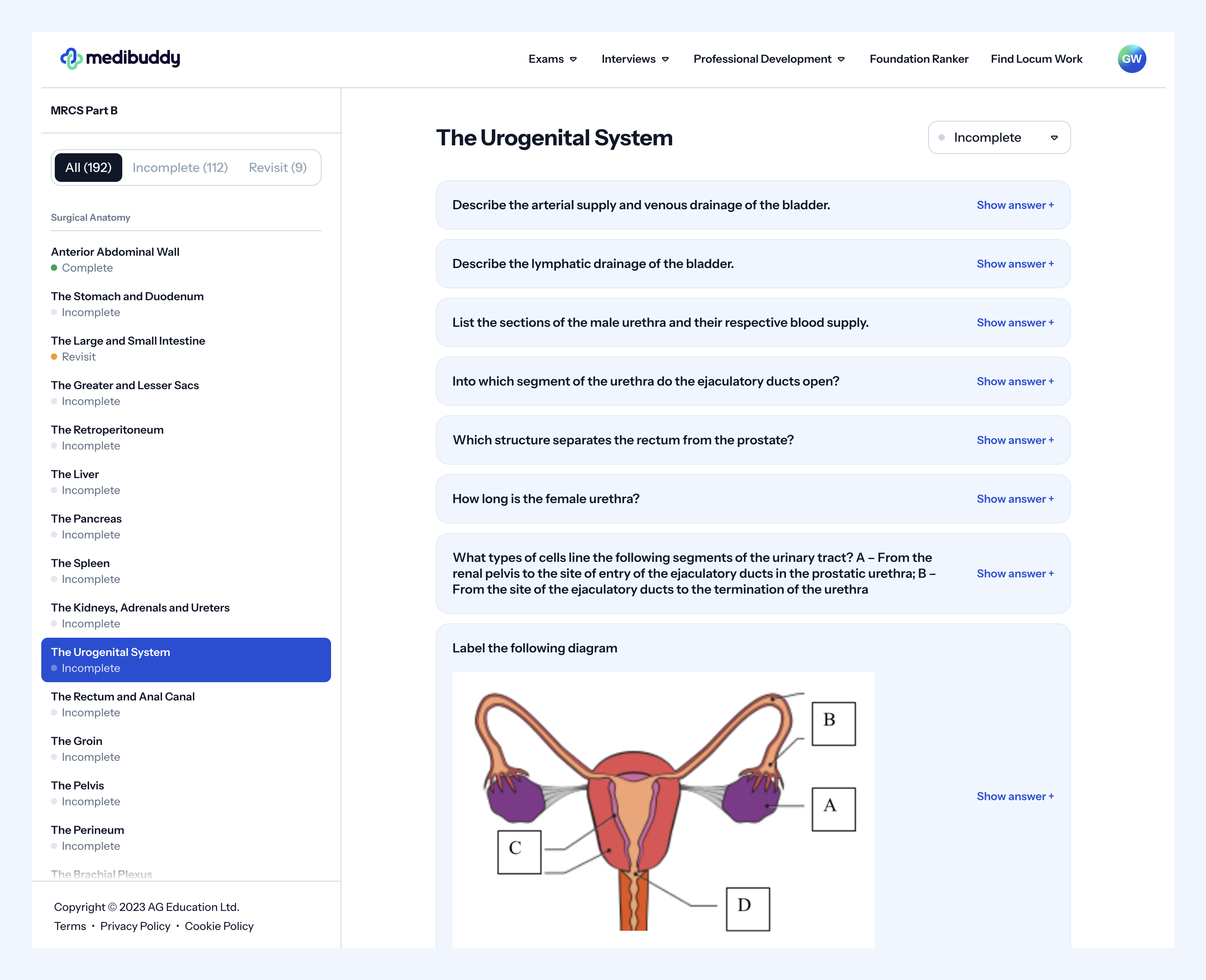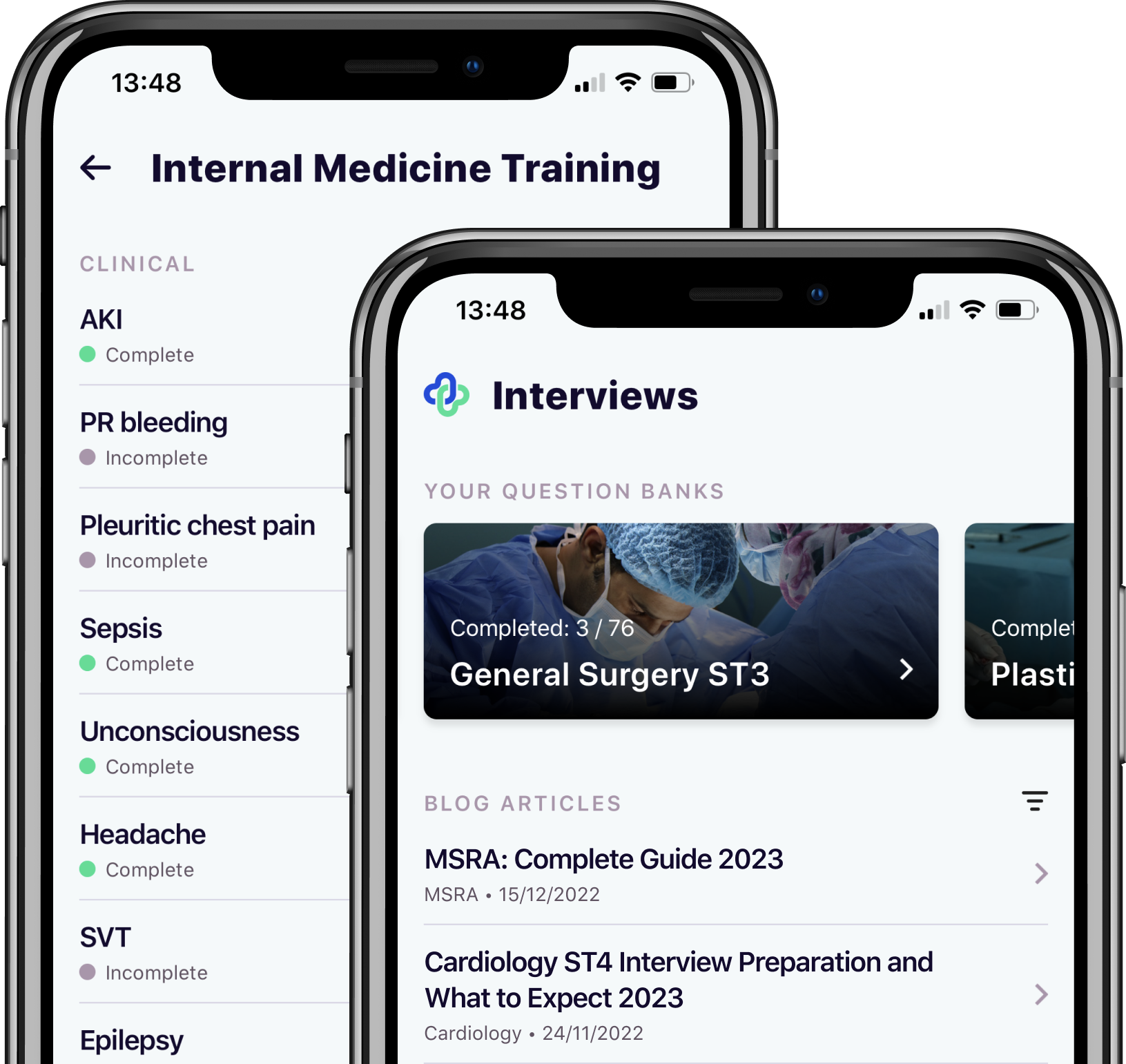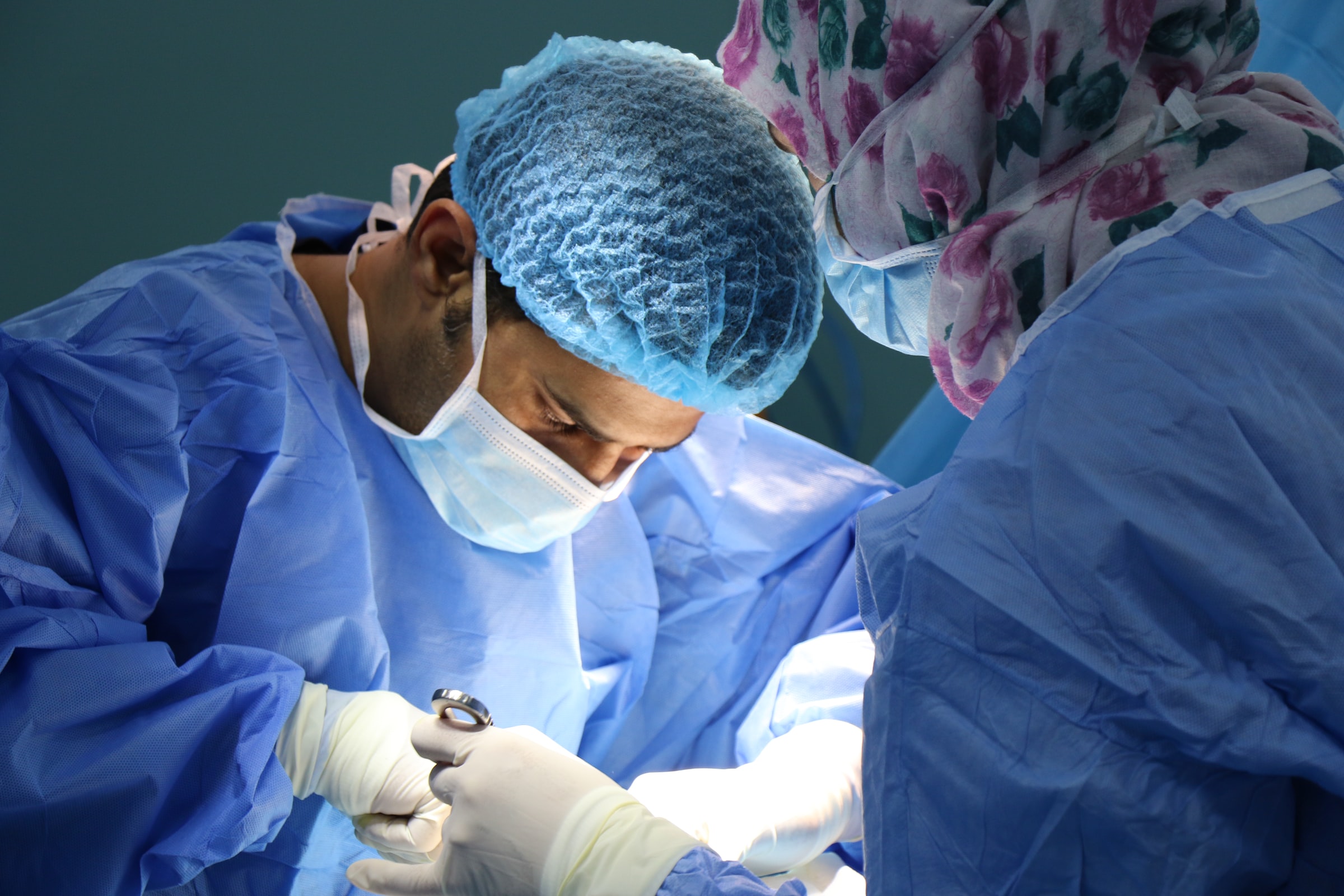
MRCS Part B Complete Guide
The MRCS Part B exam is the second and final examination required to gain membership of the Royal College of Surgeons (MRCS). It assesses whether a surgical trainee has the correct knowledge, skills and attributes to progress beyond basic training to higher levels of specialist surgical training.
The MRCS exam is made up of two parts. Part A is a written paper, while Part B is an Objective Structured Clinical Exam (OSCE). This complete guide will support you to prepare for the MRCS Part B. For more information and support preparing for Part A, there’s our MRCS Part A complete guide.
Those who complete both parts of the MRCS exam are awarded the postgraduate diploma, which grants membership to one of the four Royal Colleges of Surgeons of Great Britain and Ireland.
The awarding bodies of the MRCS are:
- The Royal College of Physicians and Surgeons of Glasgow
- The Royal College of Surgeons of Edinburgh
- The Royal College of Surgeons of England
- The Royal College of Surgeons of Ireland
You will need to take the MRCS if you are applying to any of the following specialties:
| Cardiothoracic Surgery ST3 | Plastic Surgery ST3 |
| Emergency Medicine ST3 | Trauma & Orthopaedic Surgery ST3 |
| General Surgery ST3 | Thoracic Surgery ST4 |
| Oral & Maxillofacial ST3 | Urology ST3 |
| Otolaryngology ST3* | Vascular Surgery ST3 |
| Paediatric Surgery ST3 | |
*MRCS (ENT)
The requirements and deadlines for completing the MRCS varies across the specialties. Always check the individual person specification for the specialty you’re interested in.
Guidelines
MRCS Part B consists of 17 examined stations, each lasting 9 minutes. In total, the exam takes approximately 3.5 hours. An examiner overlooks every station, with some stations requiring two examiners, while others only need one. For stations with two examiners, each examiner will assess different aspects of your performance.
The various stations will examine your knowledge and skills of the following topic areas:
- Applied knowledge: anatomy, surgical pathology, applied surgical science and critical care.
- Applied skills: communication skills in giving and receiving information, history taking and clinical and procedural skills.
Below is an example of a surgical anatomy question from our MRCS Part B question bank.

For each question, you’ll be given an answer explanation and the number of marks awarded. The ‘Station Summary’ provides the option to extend your learning further with more information about the topic.
Requirements for MRCS Part B
You must demonstrate an understanding of the four key content areas of anatomy, surgical pathology, applied surgical science and critical care. In addition to this, you will be required to show a range of applied skills across various topics. To successfully pass MRCS Part B, you must complete both the knowledge and skill components of the exam. You will have a maximum of four attempts to pass Part B of the MRCS exam. However, given the expense of the exam, you want to avoid resits where possible. Dedicating time to effective preparation can help you pass the MRCS Part B first time.
Maximise your performance in the MRCS Part B exam by preparing effectively and efficiently.
We provide over 1800 questions and answers across 190 scenarios, covering all aspects of the exam syllabus, including mark schemes and station summaries, to aid your revision.
MRCS Part B eligibility criteria
You must pass Part A of the MRCS before you can take Part B.
To be eligible for the MRCS exam, you must have a medical degree that is deemed acceptable by either the UK General Medical Council (GMC) or the Medical Council in Ireland, so you can be fully, provisionally or temporarily registered.
First time applicants not registered with the GMC or the Medical Council in Ireland must submit their original medical degree certificate or an authenticated copy to the councils of colleges.
Our blog on MRCS for Overseas Doctors provides further information for those not in the UK.
For further support in helping you find out whether you are an eligible candidate, you can check the intercollegiate MRCS exam website for more information.
MRCS application
Applications for Part B of the MRCS can be submitted through each of the Royal College of Surgeons websites. In total, there are four colleges where you can complete an application. These are the Royal College of Physicians and Surgeons of Glasgow; the Royal College of Surgeons of Edinburgh; the Royal College of Surgeons of England; and the Royal College of Surgeons of Ireland.
MRCS Part B Exam dates
MRCS Part B exam dates are held three times per year.
The upcoming February and May 2025 exam dates can be found in the table below:
| Location | MRCS Part B exam window | Application deadline | Exam fee |
|---|---|---|---|
| Glasgow | 1 — 16 February 2025 | 21 November 2024 | £1099 |
| 10 — 25 May 2025 | 27 February 2025 | £1132 | |
| London | 1 — 16 February 2025 | 21 November 2024 | £1099 |
| 10 — 25 May 2025 | 27 February 2025 | £1132 | |
| Newcastle | 2 — 8 February 2025 | 21 November 2024 | £1099 |
International exams are limited, and many upcoming dates are no longer accepting applications as they are fully booked. For international dates, it’s worthwhile regularly checking the Royal College of Surgeons’ individual websites (listed above).
We offer a range of subscription options for the Medibuddy MRCS Part B question bank so you can pick the most suitable options depending on your test date and how long you wish to prepare for.
MRCS Part B results
Each individual station within the MRCS Part B is assessed in two ways:
- Firstly, a structured mark sheet determines the award for each domain, while generic descriptors are used to identify and guide examiners in allocating the marks. There is a standardised distribution of marks across the broad content areas.
- In addition, an overall judgement is made on the candidate’s performance at the station as a whole, concluding in either a pass, borderline or fail.
For each station, you will receive a mark out of 20, alongside an overall judgement of your performance. The marks and global ratings are then employed to construct the overall pass mark for each station. This is done by a recognised approach known as borderline regression methodology.
MRCS Part B questions
The MRCS syllabus provides insight into the necessary knowledge and skills that are needed to pass the exam. For MRCS Part B, the individual stations are grouped into two separate content areas.
Knowledge (8 stations)
- 3 surgical anatomy stations
- 2 surgical pathology stations
- 3 applied surgical science and critical care stations
- 1 generic critical care
- 1 generic interpretation of written data
- 1 generic interpretation of visual information
Skills (9 stations)
- 4 communication skills stations
- 2 generic history taking
- 1 generic giving information to a patient/relative
- 1 generic giving information to another health professional
- 5 clinical and procedural skills stations
- 3 physical examination
- 2 generic skills
The primary focus of the MRCS is to test the basic components of knowledge and skills that all surgical trainees are required to have. A set of domains are used to design the stations in order to help construct the questions. This ensures that the examination adequately covers the important areas identified by the GMC’s Good Medical Practice. These domains are:
- Clinical knowledge and its application
- Clinical and technical skill
- Professionalism including decision-making, problem solving, situational awareness and judgement, organisation, planning and patient safety
- Communication
How to Pass MRCS Part B
MRCS Part B revolves around the knowledge and skills of each candidate. Therefore, it’s vital that you know how to effectively demonstrate your skill set in front of the examiners. You can also pick up a significant amount of marks within the exam by displaying good communication skills. These skills can be improved by working with others and reflecting on how you can benefit by communicating effectively.
There are many resources that can help you to prepare for MRCS Part B. These generally include the MRCS syllabus, textbooks, practice questions and mock exams. Using a mixture of these tools will mean you are likely to be well prepared, giving you a higher chance of passing MRCS Part B.
The Medibuddy MRCS Part B question bank can help you to prepare effectively and maximise your performance to help you pass the exam first time! With questions and scenarios covering all aspects of the exam syllabus, mark schemes and ‘station summaries’ to aid your revision, you’ll find everything you need to prepare for the MRCS Part B.
Resources
The MRCS syllabus is a useful resource for preparing to take both parts of the exam. Within the syllabus, there are several sections that provide helpful information, including a background and overview of the MRCS exams, as well as the recommended textbooks for revision. The syllabus also indicates the topics and skills that might be examined in the MRCS exams. The final section of the syllabus is dedicated to MRCS Part B sample questions. Going through a range of practice questions allows you to determine a response to each of the scenarios that you are likely to come across. The sample questions in the MRCS syllabus provide a great starting point for this, but you’re likely to need more practice questions to help you prepare fully, which is where a question bank, such as the Medibuddy MRCS Part B question bank, can help.
MRCS Part B books
The Royal College of Surgeons website provides an extensive list of books that can help you prepare for the MRCS exams:
- Grant’s Atlas of Anatomy (13th ed.)
- Ganong’s review of medical physiology (25th ed.)
- Last’s Anatomy: Regional and Applied (12th ed.)
- Essential revision notes for Intercollegiate MRCS: book 1 (2006)
- Access to surgery: 500 single best answers in general & systemic physiology (2007)
- Surgical critical care for the MRCS OSCE (2015)
- Physical examination for surgeons: an aid to the MRCS OSCE (2015)
- SBA MCQs for the MRCS Part A (2013)
- MRCS Part A: 500 SBAs and EMQs (2013)
- Intercollegiate MRCS part A: SBAs and EMQs: mock papers with comprehensive answers (2013)
There are also several titles that are available as EBooks:
- Principles and Practice of Surgery (7th ed.)
- Robbins Basic Pathology (10th ed.)
- Gray’s Basic Anatomy, (2nd ed.)
- Gray’s Atlas of Anatomy (2nd ed.)
- Gray’s Anatomy (2016)
- Netter’s Atlas of Human Anatomy (7th ed.)
- Last’s Anatomy, (12th ed.)
- Guyton and Hall Textbook of Medical Physiology, (13th ed.)
- Netter’s Clinical Anatomy (4th ed.)
Is the MRCS Part B Exam Difficult?
The highest pass rate for MRCS Part B is 75%, which was recorded during the autumn 2020 exams. More candidates tend to pass Part B of the exam than Part A. However, you only get four attempts to complete Part B, whereas with Part A you get six opportunities.
How difficult you find MRCS Part B will largely depend on how well you prepare. While knowledge is an integral component of MRCS Part B, using the right exam technique is crucial. Therefore, it’s important that you learn how to extract and present your knowledge in response to each exam question.
Our blog covering common mistakes made by MRCS candidates – both in Part A and Part B – will help you to avoid errors and prepare as effectively as possible. And our professionally written MRCS Part B question bank will help you to get the most out of our exam preparation. For more preparation support and exam advice, check out the MRCS Part A and MRCS Part B sections of our website.

Take your subscriptions with you
Our mobile app allows you to access your interview and exam question banks wherever you are.





